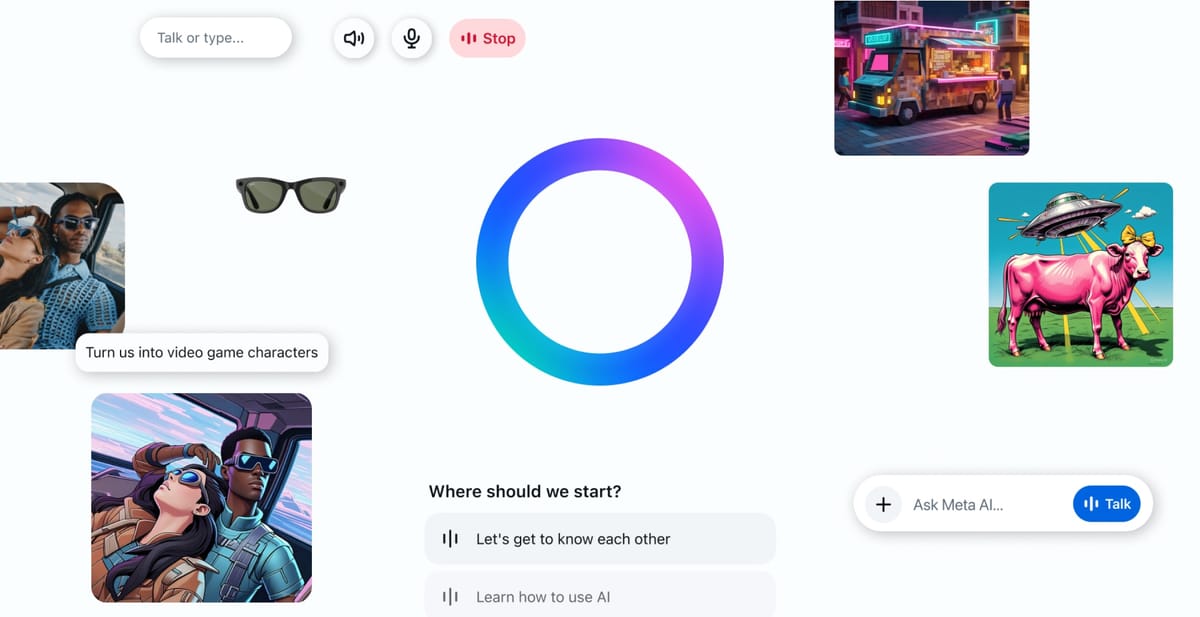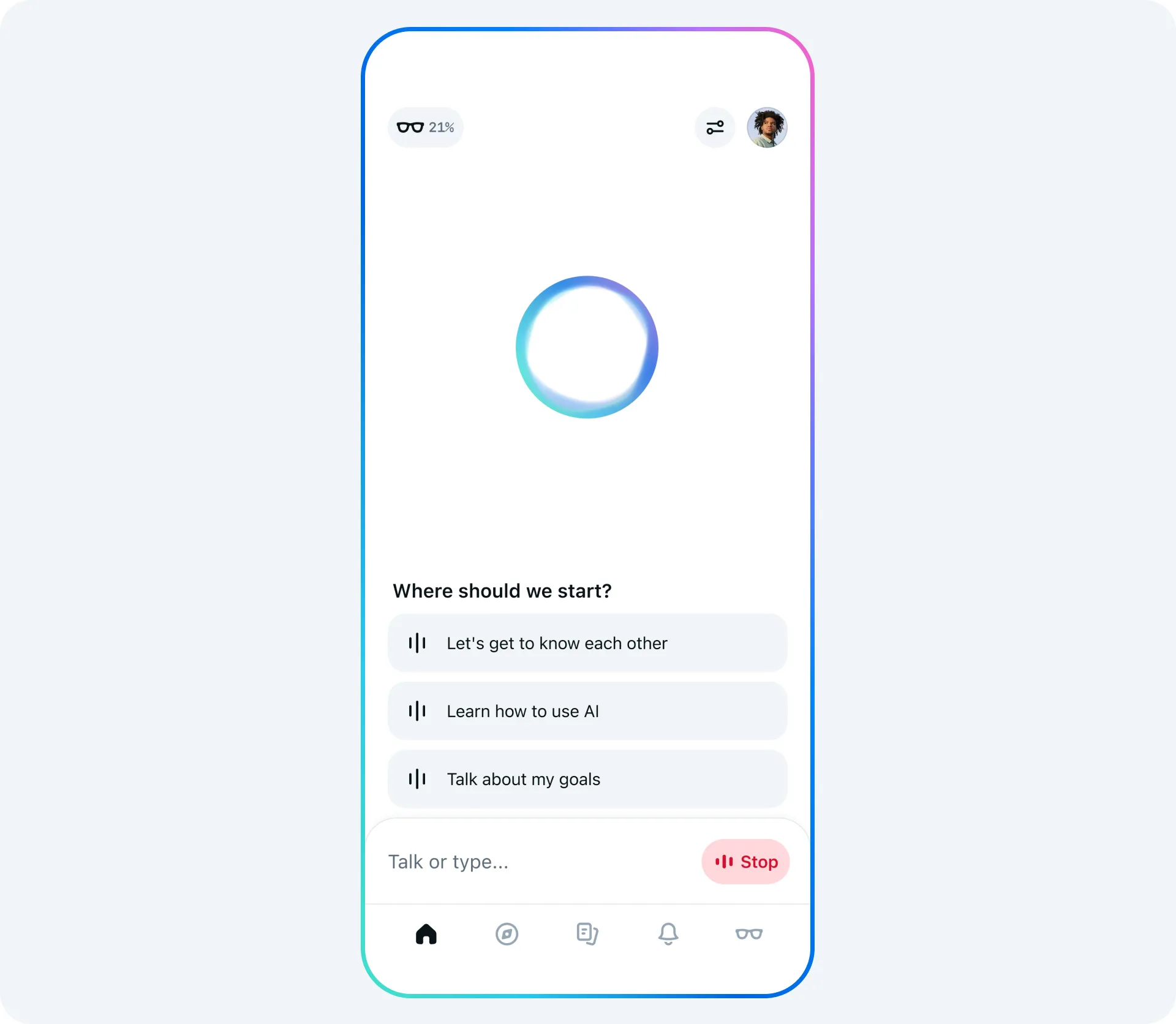
After months of integrating AI assistants into its various platforms, Meta is launching a dedicated app this week. The company is positioning the new application as the most personal AI assistant available — one that remembers your preferences, learns from your behavior, and follows you seamlessly across devices, including its Ray-Ban smart glasses.
Key Points:
- Meta has launched a standalone AI app built on its Llama 4 model, designed to remember your preferences and personalize responses
- The app features voice interactions, a Discover feed for sharing AI prompts, and synchronization with Ray-Ban Meta glasses
- The assistant works across Facebook, Instagram, WhatsApp, and Messenger, creating a continuous AI experience throughout Meta's ecosystem
"We're launching a new Meta AI app built with Llama 4, a first step toward building a more personal AI," the company announced in a blog post on Monday. "This release is the first version, and we're excited to get this in people's hands and gather feedback."

The standalone app represents a significant evolution in Meta's AI strategy, which until now has focused on embedding AI assistants within its existing social platforms. While Meta AI will continue to appear across Instagram, Facebook, WhatsApp, and Messenger, the new dedicated app creates a centralized home for deeper interactions — particularly focusing on voice-first exchanges.
Unlike many competing AI assistants, Meta is emphasizing personalization as its key differentiator. The app uses information from your existing Meta profiles and engagement history to tailor responses specifically to your interests and needs. For users who have connected their Facebook and Instagram accounts through Meta's Accounts Center, the AI can draw from both platforms to create an even more customized experience.
"We're using our decades of work personalizing people's experiences on our platforms to make Meta AI more personal," Meta explained. "You can tell Meta AI to remember certain things about you (like that you love to travel and learn new languages), and it can also pick up important details based on context."
The app also introduces a social dimension with its Discover feed, where users can browse popular AI prompts from other users or share their own creative exchanges. It's a feature that echoes Meta's social media roots, transforming AI from a private utility into a potentially collaborative experience.
Perhaps most notably, Meta is merging its AI assistant with the Meta View companion app for Ray-Ban Meta glasses — effectively making the smart glasses an extension of the AI experience. Conversations started through the glasses can be continued later in the mobile app or on the web, though the company notes that the synchronization only works in this direction for now.
Meta is also testing advanced document features for its web interface, including a document editor that can generate text and images for export as PDFs, and the ability to import documents for analysis — features that place it in more direct competition with productivity-focused AI tools from Microsoft and Google.
Voice interaction is central to the Meta AI app experience, with the company highlighting improvements to its conversational abilities through the Llama 4 model. For users in the US, Canada, Australia, and New Zealand, the app includes an experimental "full-duplex speech technology" that generates voice responses directly instead of converting text to speech, creating more natural-sounding exchanges.
The move comes as AI assistants have become a critical battleground for tech giants, with OpenAI's ChatGPT, Google's Gemini, and Microsoft's Copilot all competing for user attention. Meta's approach — leveraging its massive social graph and focusing on personalization across platforms — presents a distinctly different vision for AI that's less about knowledge retrieval and more about creating a persistent helper that understands your life context.
Whether users will embrace an AI that knows them so intimately remains to be seen. The company's blog post emphasizes that "you're in control of your experience," with settings to manage how the AI accesses your information. But the value proposition is clear: in Meta's vision, the most useful AI assistant isn't just the smartest one — it's the one that remembers who you are, no matter where you encounter it.
The Meta AI app is available now for download, with personalized responses currently limited to users in the US and Canada as the company gradually rolls out features to international markets.
